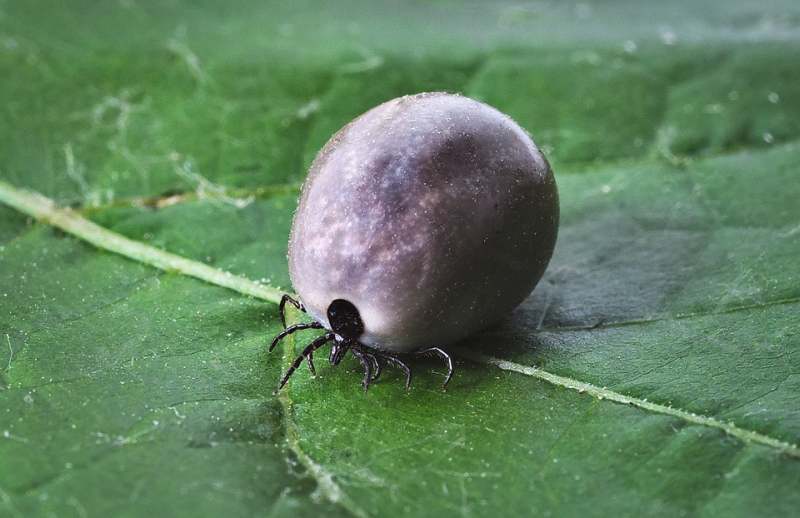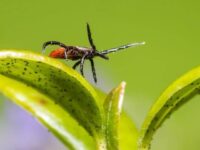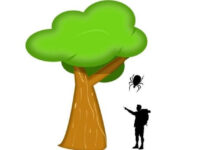Ticks have a really bad image. They are parasites that suck blood from us and nearly any other creature they manage to get a hold on. On top of that, they can transmit many dangerous diseases. No wonder many people ask questions like “Why are they even there?” Or “What are ticks good for?”
These questions are very understandable when hearing all the time about the dangers of being bitten by a tick and contracting a tick-transmitted disease. Anyway, ticks need to be good for something. Otherwise, nature would have let them go extinct long ago.
What are ticks good for?
- Serve as food
- Are hosts to other parasites
- Aid natural selection and evolution
- Train our immune system
An important role in the food chain
Although ticks are parasites that feed on the blood of many different hosts, they are also part of the food chain and are eaten by many animals.
Ticks belong to the arachnid class, just like spiders. And almost all types of spiders have a large number of predators, they are eaten by reptiles, birds, and small mammals. Birds are among the most important tick eaters, and even chickens eat ticks when they find one.
Parasites and insects are a great source of protein and extremely nutritious. Parasitic organisms make up about half of all living species. If they were all exterminated, the entire food chain would collapse and most other living things would starve.
Ticks serve as hosts to other parasites
As we have just learned, there are a whole lot of parasitic creatures on our planet. So no wonder that ticks are also hosts to many parasites of which some kill the tick in the end.
A very common world-wide, soil-inhabiting fungi Metarhizium anisopliae befalls and kills ticks. A group of Pinworms (Nematodes) also causes trouble to ticks and many other parasites. The tiny worms slip through the segments of the exoskeleton and eat their host from within. The tick wasp, Ixodiphagus hookeri finds ticks and lays eggs into the body of the tick. The wasp larvae hatch when the tick takes its first blood meal. They then eat the tick from inside until they break the tick exoskeleton and emerge as wasps.
Ticks accelerate selection and evolution
Ticks and other parasites are likely to play a role in the evolutionary process as they affect the health and immune systems of their hosts. Animals that are weakened by parasites may die or often have fewer offspring. Some animals are less affected by the parasite and remain healthy. They can reproduce and pass on the positive genetic modification to their offspring. They are then also resistant to the parasite and can pass it on again. Pure Darwinism.
Ticks spread bacteria and viruses
For bacteria and viruses, ticks are extremely important. As the pathogens are not really mobile themselves, they rely on “vehicles” to move from one host to the next.
Parasites keep our Immune system busy
If our immune system has nothing to do because we live in a clean sterile world it can sometimes turn against us. Allergies and autoimmune disorders are on the rise. When a tick bites us, a whole cocktail of viruses and bacteria enters our body. Most of them our body has learned to deal with.
Some of those pathogens will result in illnesses such as Lyme Borielosis, tick-borne encephalitis, Rickettsial infections, Ehrlichiosis, and others. These illnesses can be quite different in their seriousness, depending on what the patient’s general health condition is or whether someone has good “genes”.
So Why Are Ticks There?
Nature does not really ask such a question. In nature, you only have to look at the big picture, the interaction of many organisms, and if there is a niche to fill. And ticks have found a niche, to which they have adapted very well.
Ticks are simple creatures that don’t need much energy, they feed 2 or 3 times in their life, they don’t move much, need only a few sensory organs to detect a victim and need only a simple nervous system to function. Once they have found a host they are quite safe while feeding. After a couple of days, they fall off, morph into the next development stage, lay eggs, and die.
Ticks are part of the Ecosystem
Everything in nature depends on each other, nature is one living organism. Parasitism is an extremely successful and widespread way of life. Ticks are successful parasites, but nevertheless, they are an annoying pest to humans.
They have found an ecological niche from which nobody has expelled them and all efforts to eradicate them at least in our immediate neighborhood seem futile. Planting tick repelling plants in our gardens and using tick repellents is all we can do to prevent tick bite and reduce the risk of tick tick-transmitted diseases.
Sources:
ncbi.nlm.nih.gov/books/NBK214895/
newscientist.com/article/mg21929270-300-parasitism-is-the-most-popular-lifestyle-on-earth/
bbc.com/earth/story/20150127-what-if-all-the-pests-vanished



